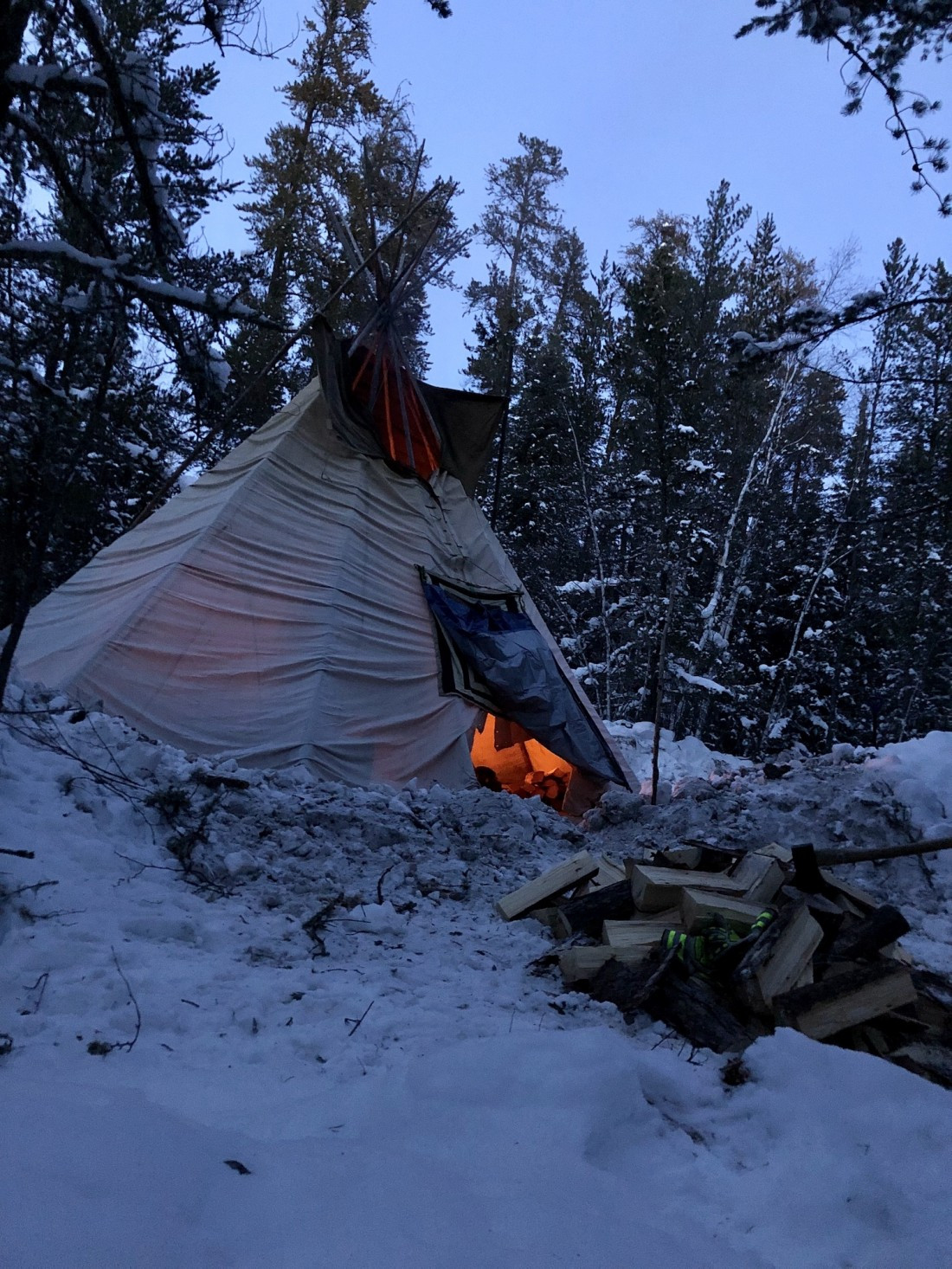Camp Morningstar shines bright
Education and advocacy camp celebrates first anniversary
On Feb. 16, Camp MorningStar celebrated its one-year anniversary.
Camp MorningStar was established in response to the proposal of the Wanipigow Silica Sand Extraction Project by Canadian Premium Sand (CPS). The project, which would have been adjacent to Hollow Water First Nation, was intended to “supply silica sand to be used in oil and gas operations and glass production.”
The Camp provides education on the dangers of silica sand mining, pushes for government reassessment of the project and advocates for meaningful community consultation.
Drey Smith, a descendant of the Midewiwin leader Morning Star for which the camp is named and one of the original five who set the camp up one cold night in 2019, originally worked for CPS. He says that as he learned more about the scope of the project and saw the concern from his son, he “made up (his) mind and said that (he) couldn’t be a part of what was happening out there ... not just with the company but with the local chief council and community being manipulated by the company.”
Smith says the camp didn’t start out as an environmental protest. “Us five guys had no idea about environmental stuff or anything like that. The only thing we knew was that what we were doing was right, not just for us but for everybody,” he says.
Reg Simard, who is from Manigotagan and is an off-reserve member of Hollow Water First Nation, says the sand mine project would have probably gone ahead if not for the work of Camp MorningStar.
“They come and set up and make all kinds of promises. Once they get the mine in production, they flip it. The other company comes up and says, ‘we didn’t promise that,’” he says. “It’s a shell game.”
Simard says he and his ex-wife MJ, went through the 600-page project proposal and found “all the glaring errors, all the stuff they didn’t expect us to know about,” ranging from citing weather data from different regions to unaddressed concerns about the expected levels of silica dust in the air, which is carcinogenic, being up to five times higher than safe levels.
When the chief medical officer began asking the company whether they were prepared to evacuate the community, Simard recalls being startled by the danger. “‘Evacuate?’ That scared the living daylights out of me.”
While Simard says the one-year anniversary of the camp is a “tremendous achievement,” Smith doesn’t feel the same.
“It’s not just about the silica sand mine and Camp MorningStar,” he says. “It's not just happening where I live. It’s happening all across Turtle Island, where industry is coming in and taking over all our natural resources, all our traditional territory, taking over everything ... What’s happening out there can happen to every First Nations community, and it is happening to every First Nations community.”
While Smith has given many presentations on the camp, he encourages people to visit for themselves. “Everyone likes to hear these stories, but I think to understand these stories, you have to get out there and come to camp,” he says.
Earlier in February, CPS announced that the project would be shelved, citing poor market conditions. Their environmental license officially expires in 2022, and until the project is cancelled, Camp MorningStar will continue to educate and advocate.
Published in Volume 74, Number 20 of The Uniter (March 5, 2020)







